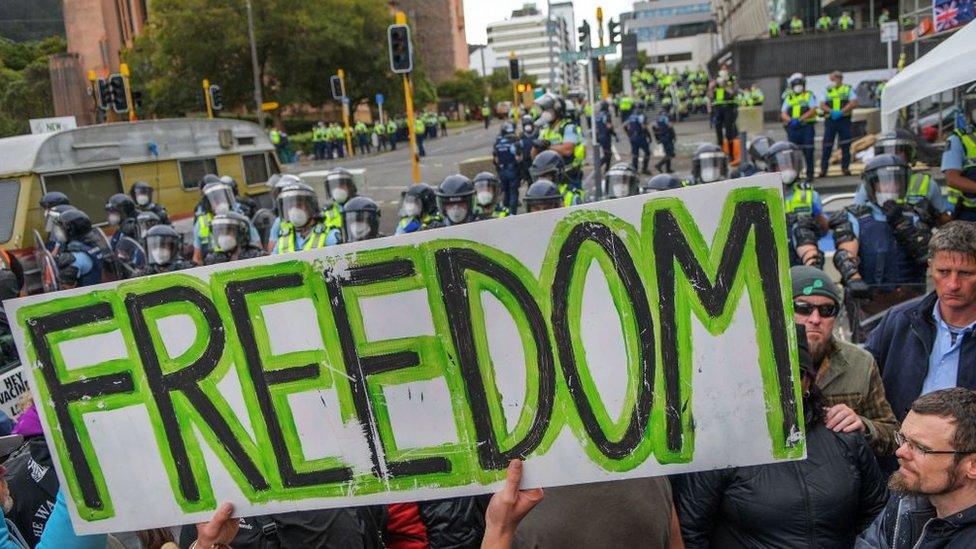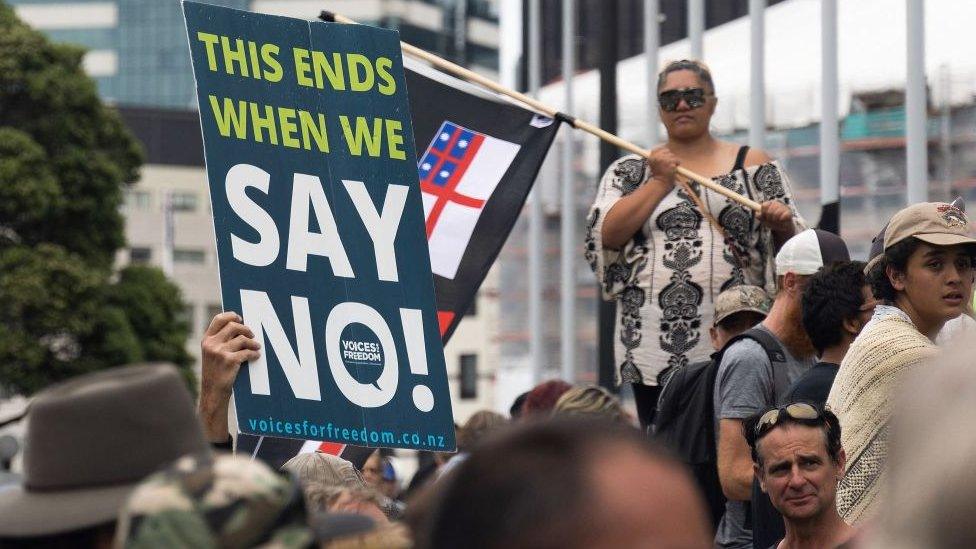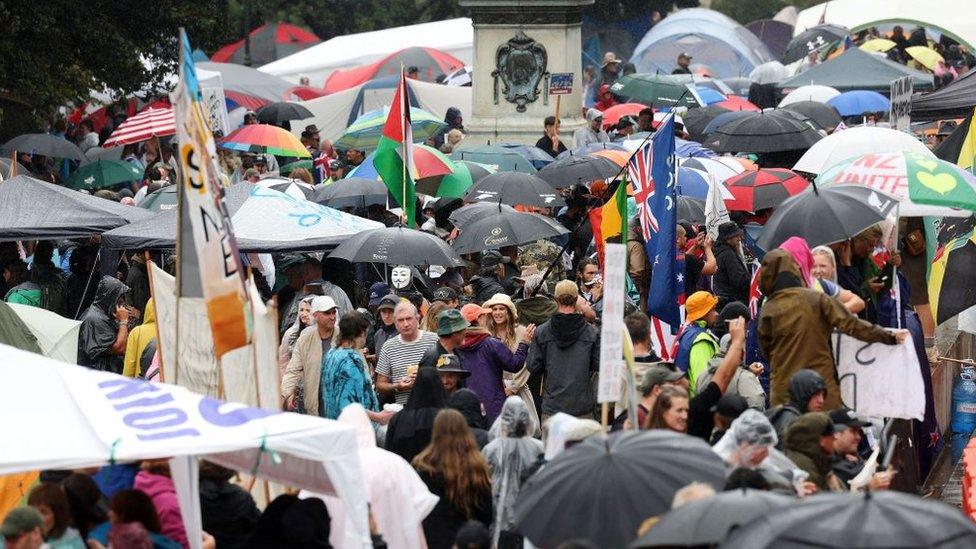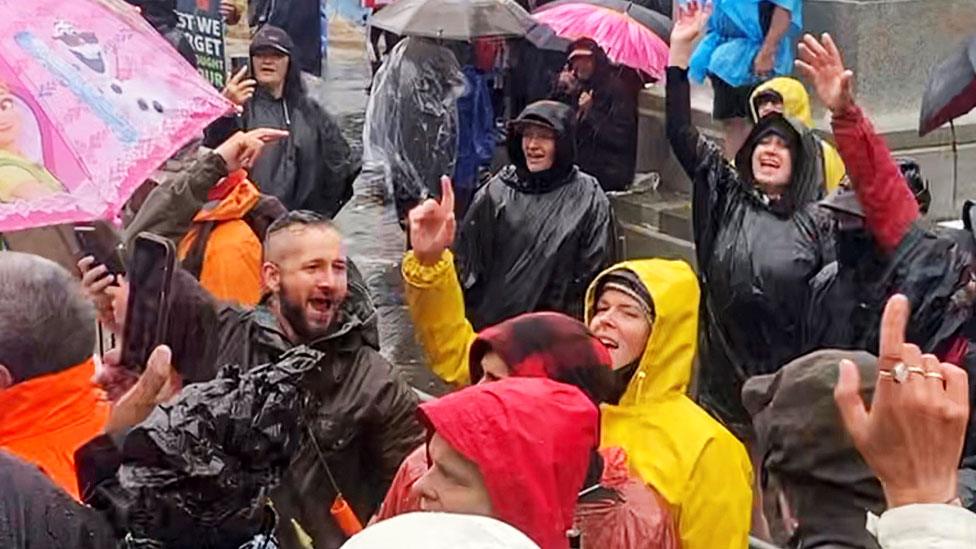New Zealand scraps outdoor masking, some Covid vaccine mandates
- Published

Protests against vaccine mandates broke out across New Zealand last month
New Zealand is set to significantly relax its Covid-19 restrictions with Prime Minister Jacinda Ardern calling it a "new beginning for the country".
Key changes include scrapping masking outdoors and easing vaccine mandates for employment in some sectors.
New Zealand has had some of the world's toughest virus restrictions.
Anger at some of these rules had led protesters to occupy the grounds outside parliament, with some demonstrations even turning violent.
The vaccine mandates in particular, were among some of the main grievances of protesters, who stayed put for more than three weeks in February.
Public polls also showed increasing dissatisfaction with Ms Ardern's government.
Under the new rules, which will come into effect from 4 April, double vaccination will no longer be required for people to work in education the police or the defence force.
However, employees in sectors like health, aged care, prisons and border force staff - will still need to to be fully vaccinated.
Ms Arden has said that the decision to ease restrictions had not been as a result of the protests, but because models that showed a recent surge in cases caused by the Omicron variant was easing.
The country saw a huge wave in infections since Omicron took hold, with almost 21,000 new daily cases.
"The evidence shows we are coming off the Omicron peak with cases in Auckland having already declined significantly, and a decline expected nationally by early April," Ms Ardern told a news conference Wednesday in Wellington.
About 95% of eligible New Zealanders over the age of 12 have had at least two doses of a Covid-19 vaccine. The prime minster said as a result of the high vaccination rate, the government did not expect to see a surge of cases once restrictions were eased.
You may also be interested in:
Watch NZ police blast James Blunt and Baby Shark at protesters
- Published9 February 2022

- Published13 February 2022

- Published14 February 2022
